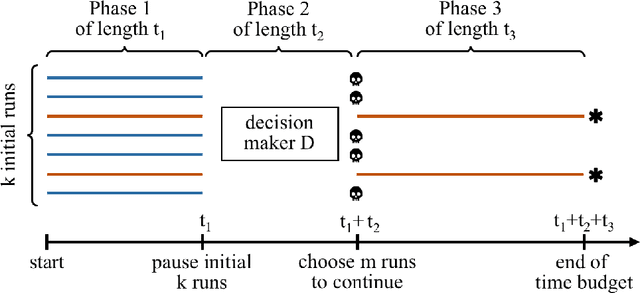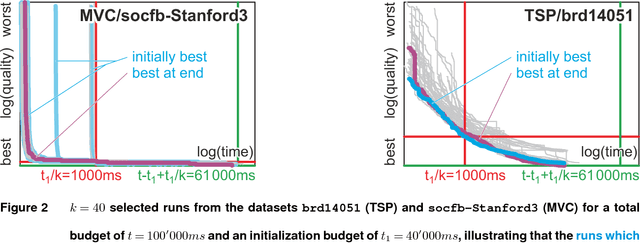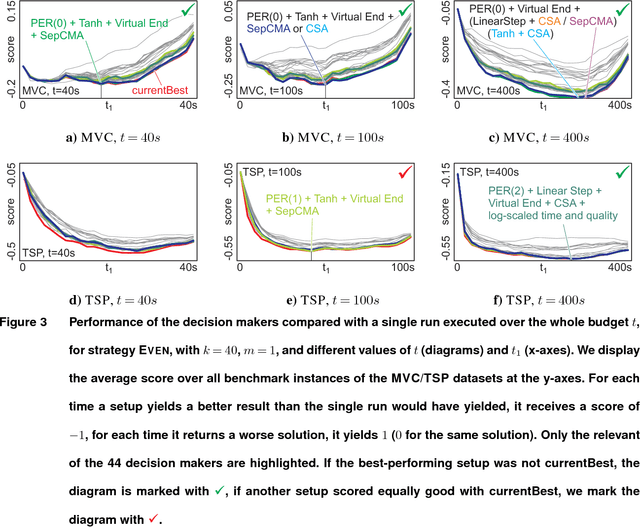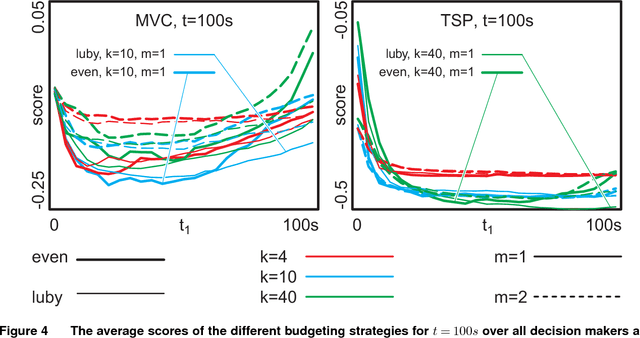An Improved Generic Bet-and-Run Strategy for Speeding Up Stochastic Local Search
Paper and Code
Jun 23, 2018



A commonly used strategy for improving optimization algorithms is to restart the algorithm when it is believed to be trapped in an inferior part of the search space. Building on the recent success of Bet-and-Run approaches for restarted local search solvers, we introduce an improved generic Bet-and-Run strategy. The goal is to obtain the best possible results within a given time budget t using a given black-box optimization algorithm. If no prior knowledge about problem features and algorithm behavior is available, the question about how to use the time budget most efficiently arises. We propose to first start k>=1 independent runs of the algorithm during an initialization budget t1<t, pausing these runs, then apply a decision maker D to choose 1<=m<=k runs from them (consuming t2>=0 time units in doing so), and then continuing these runs for the remaining t3=t-t1-t2 time units. In previous Bet-and-Run strategies, the decision maker D=currentBest would simply select the run with the best- so-far results at negligible time. We propose using more advanced methods to discriminate between "good" and "bad" sample runs, with the goal of increasing the correlation of the chosen run with the a-posteriori best one. We test several different approaches, including neural networks trained or polynomials fitted on the current trace of the algorithm to predict which run may yield the best results if granted the remaining budget. We show with extensive experiments that this approach can yield better results than the previous methods, but also find that the currentBest method is a very reliable and robust baseline approach.
 Add to Chrome
Add to Chrome Add to Firefox
Add to Firefox Add to Edge
Add to Edge